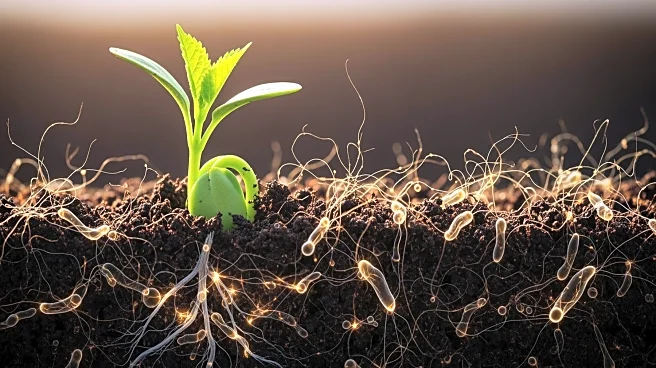What's Happening?
Researchers at Penn State have developed a novel technique to study soil microbes, revealing that microbial activity is more crucial than abundance for plant colonization. The study, published in mSystems, found that active microbes in the rhizosphere
are more likely to colonize plant roots than dormant ones. This discovery could lead to sustainable agricultural practices by modulating microbial communities to enhance nutrient uptake and disease resistance in plants.
Why It's Important?
Understanding the role of microbial activity in plant colonization is vital for developing sustainable agricultural practices. By promoting active microbes, farmers could improve crop yields and reduce reliance on chemical fertilizers, aligning with global sustainability goals. This research highlights the potential for using microbial communities to enhance plant health and productivity, offering a promising avenue for future agricultural innovations.















